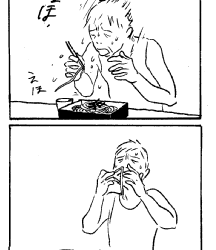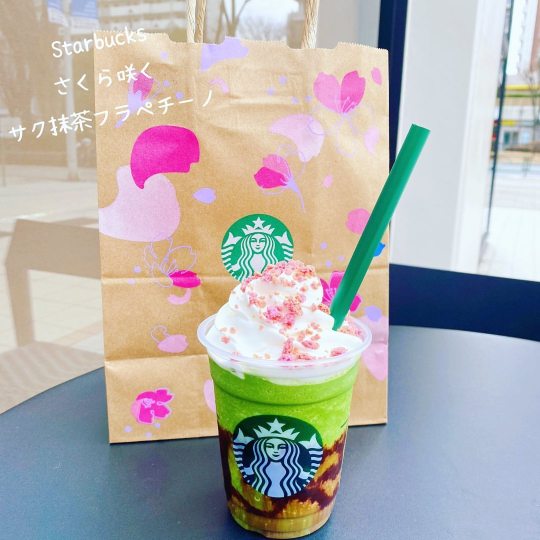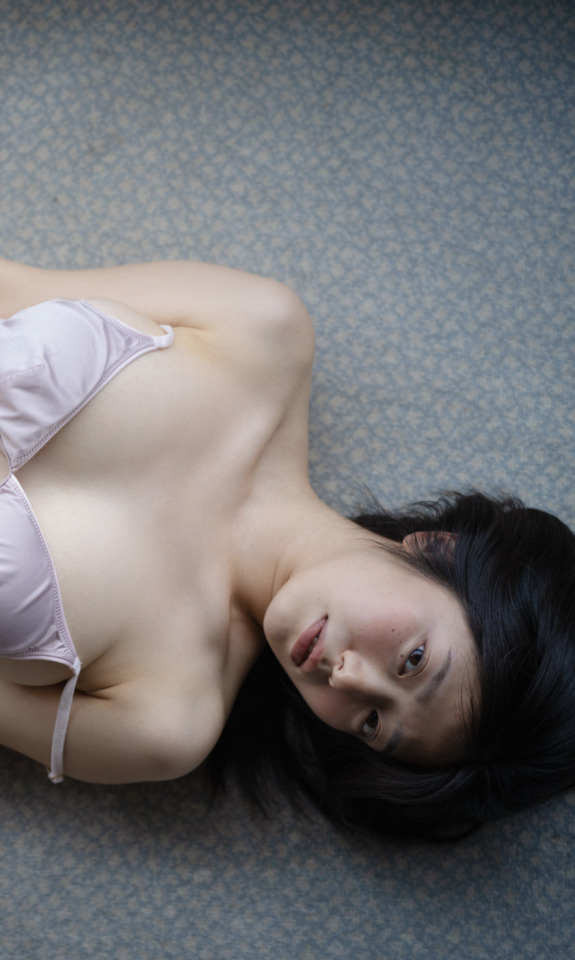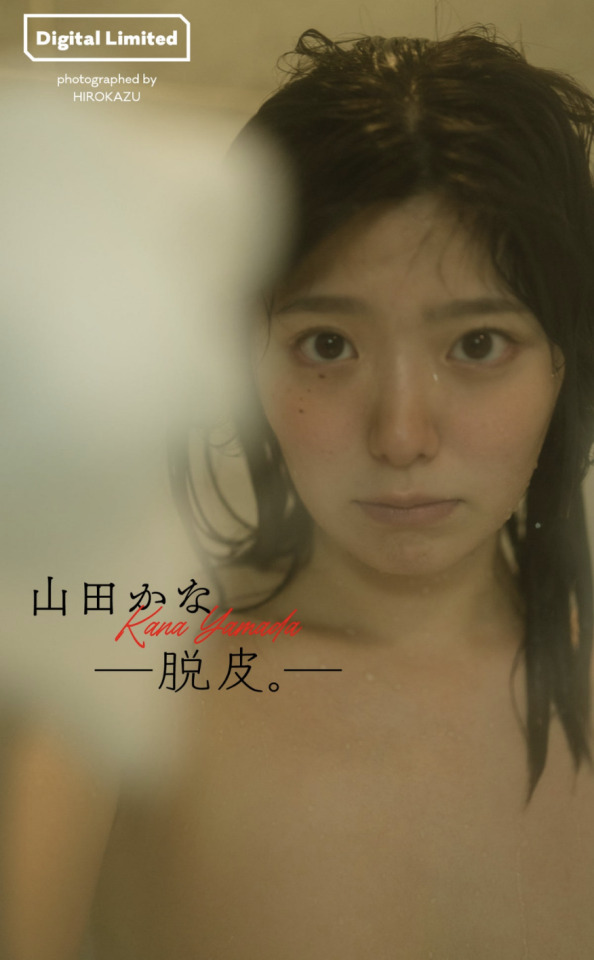#苦味
Explore tagged Tumblr posts
Text
求めるものが得られない苦しみの求不得苦について様々なお経を引用して解説している。
0 notes
Text

#IFTTT#Instagram 日本酒 sake 日本酒うさぎ 堺筋本町 船場センタービル2号館 土曜日のべにくらげの帰りに 箕面ビールパパざるラガー 苦味が強め チーズ豆腐 八咫烏877 八咫烏菩提酛 土曜
0 notes
Text

0 notes
Video
youtube
人生観、世界観、宗教観、仏教観、浄土真宗観
0 notes
Photo

✿ せんぶり茶 ・センブリという植物から作られるお茶で、強い苦みが特徴です。古くから民間の生薬のひとつとして親しまれてきたセンブリ茶ですが、味に特徴があることからテレビ番組の罰ゲームにも使われ幅広い世代に有名になりました。 ・センブリ(千振)は「千回振り出しても苦い」という言葉が由来になったとする説があります。最も苦い生薬ともいわれ、その苦みの成分は花・葉・茎・根の全草に含まれています。日本固有の生薬で、漢方としては処方されませんが、漢方を取り扱うネットショップでも購入ができます。 ・センブ��茶の一番の特徴は苦みです。苦味配糖体と呼ばれる苦い成分が複数種含まれています。その中でもアマロスエリンは特に苦みが強いといわれています。苦い成分に虫よけの効果があると、襖や屏風を貼る際の糊に混ぜられていた歴史もあります。 ・弱った胃腸を苦みが刺激して分泌を促す効果効能があります。一般的な食欲不振や胃のむかつきなどの胃弱、消化不良、食べすぎ、飲みすぎ、胃の膨満感などに効果があるとされています。
#せんぶり茶#センブリ茶#千振茶#tea#日本:茶#日本:2020〜#2020〜#日本#茶#飲み物#飲み物:茶#飲み物:日本#センブリ#せんぶり#千振#taste:苦味#日本:苦味#罰ゲーム#飲み物:2020〜
0 notes
Text
情愛心理學:愛情「廿四味」
「廿四味」是中國廣東其中一種著名「涼茶」(藥用飲品),用廿四種藥材調製而成。這款涼茶的特色是不燥不寒,可以加糖加鹽,更可熱飲冷飲;因此男女合用、老少咸宜。雖然這種藥茶有益處,但是一般人(尤其是小孩)對它的觀感有點負面,都覺得它難以下咽,屬於一種「苦茶」。不過,也有人認為加入糖,反而有一種甘甜的感覺。事實上,由於各種藥材有其獨特味道,因此不同配方便產生苦、鹹、辛或酸等等味道。 由此可見,「愛情廿四味」要表達出愛情也會出現各種味道,特別是甜、酸、苦、辣;這是不少經歷過愛情(無論成功或失敗)的人也認同的說法。一般來說,戀愛是甜的,妒忌是酸的,失戀是苦的。在文學作品中,也會出現戀愛時的「甜姐兒」,妒忌時的「醋罈子」,失戀時的「苦瓜乾」等名詞。 奇妙得很,味道與人際間情緒的關係確實有心理研究證明。首先,讓實驗者吃甜味食物(糖果),會較容易同意他人的說話及互相幫助;心存感恩的人會傾向選擇甜的食物…

View On WordPress
#環球天道傳基協會#甜酸苦辣鹹#義務總幹事#週五#藥用飲品#談天說道#麥基恩博士#soulcarehk#吃苦味增加對逾越道德事情不滿#失戀時苦瓜乾#妒忌時醋罈子#心靈關懷#心存感恩選甜食#情愛心理學#愛情出現各種味道#愛情廿四味#戀愛時甜姐兒#明報#中國廣東著名涼茶
0 notes
Text
宗教の儀式は全部無意味 もとい パーティーみたいな意味
#意味はある#けじめ#礼儀#脅迫#会合#親睦#慰安#プラシーボ#プラシーボなめんな#ごっこ遊び#痛いの痛いの飛んでけ#ゴッコ・プラシーボ#陰陽プラシーボ#黒魔プラシーボ#法要プラシーボ#お祓いプラシーボ#カレンダープラシーボ#日付プラシーボ#苦難プラシーボ#戦争プラシーボ
0 notes
Text
New Ryoko Kui interview dropped!!!
(This is a quick and dirty translation made using machine translation, and which I've lightly edited to add clarity. I'm not fluent in Japanese so I may have gotten things wrong. I'm sure others will do a better job later.
ADDITIONAL CONTEXT: This article is from a Japanese gaming magazine, like the previous interview in Famitsu, so they focus on video games and don't discuss other influences, even though they do get mentioned and are clearly pretty major.)
Kui was able to write "Dungeon Meshi" because she was not good at eating food and participating in human relationships. In this interview, we dig deeper into the influence of games, and how Ryoko Kui focuses on things she likes and dislikes while writing. [Writers of the Gaming Generation]
Dungeon Meshi.
This manga is attractive for its unique theme of "dungeons, defeating monsters in the labyrinth, and cooking them," as well as the unique characters, detailed human relationships, and deep worldview depicted in the labyrinth. It is currently being made into an anime, and adventurers from all over the world are fascinated by the world of "Dungeon Meshi."
So I thought , "I wonder if this work was drawn by someone who loves food and people." The depiction of such delicious-looking food and the construction of delicate human relationships and characters. Surely, it must have been drawn by someone who absolutely loves it.
However, in reality, the author, Kui Ryoko, says that she "is not good at either food or relationships."
So why was he able to continue drawing things she was not good at?
During the roughly 10 years of serialization, Kui has continued to confront "things she dislikes." This interview delves into Kui's unique creative techniques... and at the same time, it also delves into her "favorite things."
That's the "game"!
Those who are familiar with the subject may already know this, but Kui is also a big gamer. And it seems that "Dungeon Meshi" is heavily influenced by RPGs such as "Wizardry."
As a result, this interview turned out to be "I asked Kui a lot about her likes and dislikes." Likes and dislikes. They are the source of all interests and curiosity.
So how do we use this knowledge in our creative endeavors? How does this knowledge manifest itself in Dungeon Meshi?
How were those charming characters and the deep world created? We spoke to the original author, Kui Ryoko, and the editor, Masaru Hiroi, about things they could only talk about after the series was completed.
This is a game with the volume of a great labyrinth. I hope you will explore it all the way to the final floor!
Dungeon food. It's eat or be eaten. There is no superior or inferior, to eat food is simply a privilege of the living. Dungeon food. Ah, dungeon food.
First, I want to ask about how Kui first encountered video games.
--What are some influences from games in Dungeon Meshi? What was your first game, Ms. Kui?
Ryoko Kui (hereinafter referred to as Kui): I played traditional RPGs such as [blank?] and "Final Fantasy."
I think the first game console I ever played was a Famicom, which my parents won in a lottery . So before I knew it, we had a Famicom at home. I think my parents bought me the Super Famicom and PS1 after that...
After that, I took a break from games for a bit around the time of the PS2, but around the time of the PS4, I was finally able to buy games with the money I had earned myself .
--Why were you able to stay away from games around the time of the PS2?
Kui: I was too busy with exams, so I thought, "Well, I shouldn't be playing games," and left. When I started living alone after that, I couldn't play games because I didn't have a TV. My computer was also a Mac. [Macs aren't compatible with many games.]
--What was the trigger that made you think, "I want to play games" again?
Kui: I think the biggest thing was starting the serialization of "Dungeon Meshi."
Fantasy stories all have different settings, but at the same time, there are also things they share in common. For example, if you want to create a fantasy work, but you only know "Dragon Quest," it will end up resembling "Dragon Quest." It's scary to copy the setting of only one work.
So I just wanted to play a ton of different fantasy games and get an idea of what the most common general understanding of fantasy is.
--Did you start playing it while you were still developing the concept for Dungeon Meal?
Kui: That's right. If I'm going to talk about "eating food," I have to play a game that has a system for eating food .
So I was interested in "Dungeon Master." However, at the time there was no easy way to play "Dungeon Master" on a real machine, so I played "Legend of Grimrock", which can also be played on a Mac.
["Dungeon Master," is a computer RPG released in 1987. Time passes each time you take an action in the dungeon, such as moving, fighting, or resting, so its biggest feature is that the game progresses in real time according to the player's actions. "Legend of Grimrock," is an action RPG released in 2012. It has a game design similar to "Dungeon Master."]
Until then, I had felt that overseas games and games played on PC were too difficult, but I felt like I had overcome one obstacle there. I thought, "Oh, this is pretty easy," and started playing a lot of different games.
-- Those two games are quite heavy even among RPGs, I think, so did you actually have that much difficulty with them?
Kui: No...I would say that my impression is more that best-selling games are easy to play (laughs).
I'm not that good at games myself, so I usually play games that allow you to adjust the difficulty on a super easy setting. So, games that allow you to lower the difficulty are always a lifesaver.
-- I've heard that apart from RPGs , you also like games such as "13 Sentinels: Aegis Rim" and "Paranomasite FILE23: The Seven Mysteries of Honjo ." Do you have a favorite genre, Mr. Kui?
Kui: I guess I'm just not very good at games that require you to use your brain through trial and error.
But in RPGs, if you just level up and keep tapping, you can win and progress in the game. Also, in novel-type games, if you read the text, you can progress. By this process of elimination, I quite like RPGs and text-based games .
Personally, I like games like Disco Elysium the most, which are text-heavy, top-down, and have maps to explore.
...Even I think that's a pretty negative reason (laughs).
Everyone: (laughs).
Hiroi Masaru (hereinafter referred to as Hiroi): But, Ms. Kui, you have really played quite a lot of games, haven't you?
Kui: No, the reason I'm able to play so much is because I play in a pretty callous way ...
I often buy a game, play it, and then just don't play it. So there aren't that many games I complete... I only complete a few a year. I play around 40 games, and if I complete 5 or 6, that's good.
When I asked if I could draw at Comitia, I got scolded.
-- Have you had any exposure to fantasy outside of digital RPGs?
Kui: I think it's not just games, but also the fact that I've always loved foreign fantasy novels . I was given books like "The Neverending Story," "The Lord of the Rings," and "The Chronicles of Narnia."
-- Dungeon Meshi gives off an atmosphere of Western fantasy like gamebooks or tabletop RPGs, rather than the typical Japanese fantasy games like Dragon Quest.
Hiroi: I think I went to Kui's house before the series started. At that time, we were discussing the name of a sci-fi manga called "Drawing Inside the Brain," which I had rejected many times.
Ms. Kui said she wanted to serialize this sci-fi manga... and when he was on the fourth draft, he said, "No, this isn't going to work," and when I looked at the scribbled notes next to her desk, she had already drawn the original version of "Dungeon Meshi" ! (laughs)
Kui: ……………No, I don't remember much (laughs).
Everyone: (laughs).
Kui: But I had wanted to draw a manga about exploring a dark dungeon, like Wizardry .
Since I was in elementary school, the manga I drew in pencil in my notebooks were all fantasy stories about swords and magic, so I had always wanted to draw a proper fantasy manga. However, there weren't as many fantasy manga in bookstores at the time as there are now, so I wondered, "Maybe fantasy doesn't sell."
Hiroi: At the time, there were a lot of people in their teens and twenties posting fantasy illustrations on online communities for artists, such as pixiv, and Kui was one of them.
I thought, there are so many people who want to write fantasy, so if she writes a fantasy aimed at this generation, it might sell.
And when I saw Kui's notes, I thought to myself, "Let's make a straight-forward fantasy manga, without making it weirdly twisted."
Kui: I originally thought of making this "dungeon exploration manga" as just a hobby... When I asked Hiroi if I could draw it at Comitia first, he got angry.
[Comitia is a comics convention in Japan for original self-published comics.]
Everyone: (laughs).
Hiroi: I said, "If you're going to draw at Comitia, then make sure you draw it as a proper serialization!" (laughs)
However, at that time, Kui had already published two collections of short stories, and they were being reprinted. In other words, she had a certain number of fans even before the serialization began.
So I decided, if Kui creates a pure fantasy for those fans, we can't fail badly. If it doesn't work, we'll just learn that fantasy is difficult to sell after all.
--By the way, were there any discussions between you and Ms. Kui about the fact that fantasy doesn't sell?
Kui: I remember vaguely talking about how fantasy manga doesn't sell well and how difficult it seems. I don't know much about light novels, so that might have been there for a while.
However, since a lot of fantasy manga were coming out around the same time, it was probably a "transitional period ." Maybe it was just when people started to feel more and more like they wanted to draw and read fantasy.
Not everyone is that interested in the things I like
-- I feel that "Dungeon Meshi" is a title that has breathed new life into the fantasy genre. How did you go about creating the setting and world when dealing with fantasy?
Kui: I try to think, "Not everyone is that interested in the things I like."
I like to think about pointless settings endlessly, but there are times when I think , "When this setting is actually made into a manga, people probably won't be interested in this story." So I try to include things that will make people interested, and cut out things that will distract people as much as possible.
For example, in "Dungeon Meshi" I initially wanted everyone to speak various languages. On top of that, I wanted to make the characters "only able to communicate with each other in one language"... but Mr. Hiroi said "Don't do that" (laughs).
Everyone: (laughs).
Kui: Even when I'm drawing it myself, I think, "It takes more than six panels to explain this setting...", and if I explain the setting more than necessary, it slows down the pace of the story.
Moreover, since "Dungeon Meshi" was a monthly serialization, unlike a weekly series, there wasn't much time for extraneous stories. Specifically, I had to draw one episode of about 30 pages per month.
In that case, there was no time to add in settings like "Actually, he was thinking about this behind the scenes" or "Actually, he can speak two languages." So, rather than there being any clear choices, there were quite a few times when "there was no time to do things normally." If it had been a weekly serialization, I might have included more.
--Does the scene where Chilchuck yells insults in his own language feel rather "forced"?
Kui: That's right (laughs).I thought, this only takes one frame...it's my chance [to include information about language]!
--So you haven't thought through all of these "fictional languages" yet?
Kui: If Dungeon Meshi were to be my life's work and I were to spend my whole life creating this world, I think it would be more fun to think about it...but initially, I thought that Dungeon Meshi would end in a few years.
Hiroi: Initially, I said, "It'd be nice if it continued for about five volumes" (laughs).
However, Kui's first draft really had a lot of material... so the editors cut out a lot of it. I understand that it's the parts the readers want to read, but I cut out the parts that deviate from the main story. So it's a battle between the "author who doesn't want to be cut" and the "editor who wants to cut."
--By the way, what kind of discussion took place between the "parts you want to cut" and the "parts you don't want to cut"?
Kui: There were a lot of them every time, but I can't remember them specifically now...it was just small, unimportant details that got cut.
In the scene where the hams made by the Red Dragon go back into the pool of blood, I remember saying, "You don't need these," and they were about to cut them off, but I remember desperately stopping them by saying, "We'll need them later!" I'm glad they weren't cut off.
But once I think of the setting, I want to include things, and then they get cut out, so at first I didn't want to expand the world too much.
I also wanted to complete the story within the dungeon. I didn't want to reveal the name of the country, and I didn't want to give the characters surnames. But in the second half, Hiroi-san told me, "The world is too small, so you should make it bigger," and I was like, "Are you sure?"
--Mr. Hiroi, why did you say that?
Hiroi: As the story progressed, it became clear that "Dungeon Meshi" was no longer just about saving a sister in a dungeon. So I decided that it would be unconvincing if the story had no involvement with the outside world, since what was happening in the dungeon was something that would affect the fate of the whole world.
For example, in real life companies, the more important a decision you make, the higher your superior's rank becomes, right? When I thought about it that way, I felt something was off about the idea of Laios and his friends deciding the fate of the world on their own. "How can they make that decision without anyone knowing about it?"
The fact that the Canary Team was there meant that there must have been a system of reporting, contacting, and consulting here, because that's how "society" and "organizations" work.
In short, I think we were thinking about the situation and asking, "If an organization were to get involved in saving the world, how persuasive could they make it given the society that exists in the story?"
Kui: Well, the plot hasn't changed at all.
From the beginning, I had intended to write a story about saving the world, but I also thought it was possible for the world to be saved by only a select few people in the dungeon who knew the circumstances. Changing it was what Hiroi-san thought would make it more persuasive.
When I was drawing the first half, Hiroi told me, "You don't have to decide anything yet." I was in a hurry to move the story forward and explain the world and story setting, but he told me, "It's better to limit it to introducing the four main characters until about the fourth volume." But in the second half, he said, "Introduce more people and expand the world."
Everyone: (laughs).
Hiroi: Kui-san was like , "That's not what you said originally!" (laughs) But both had meaning...
Kui: I was the one saying, "If we expand the world there, the story will never end, right...?"
After drawing it through to the end, I realized that the balance between holding back and expanding didn't work the way I had expected. I think this is one of the reasons why the serialization of "Dungeon Meshi" took so long.
-- But there are a lot of characters in "Dungeon Meshi," and the relationships between them are complicated. I heard that you also created the relationship diagram for "Taikaishu" [※3] ...
Kui: No, I haven't made one [I didn't do that?]!
[Taikaishu is a full-color web comic by Funako Tsukasa that began serialization on a website in 2005 and is still ongoing. Its unique worldview has earned it a loyal fanbase, especially on the Internet.]
-- Eh? Is that not the case?
Kui: To be precise, I just created an account on the fan wiki.
When I started reading "Taikaishu," I struggled with the complex setting and the large number of characters...and I thought "it would be easier to read if there was an explanation or a list of characters."
So I searched for a bulletin board where readers were sharing their thoughts and asked if there was a summary, but they said there wasn't. So I thought, "Maybe if there was a place where someone with more knowledge could summarize it," and I just made a wiki account.
So I didn't actually edit it. It seems like I've been given credit for someone else's work, and I'm sorry about that...
Dungeon Meshi was created from a sense of guilt about food?
-- "Dungeon Meshi" started off with the catchy theme of "cooking monsters," but little by little the darker aspects and deeper world were revealed. Was the structure of "little by little revealing the darker side" something you had in mind from the beginning?
Kui: I thought I needed a theme to serialize it so I thought I'd try "food education." There were a lot of gourmet manga at the time, but I felt like there weren't many that focused on food education.
-- Considering that the theme is "food education," it makes sense that the nutritional value of the dishes in the story is clearly written down.
Kui: With the theme of "food education," I also thought up a rough outline of the story. Rescue the kidnapped princess, defeat the evil wizard, defeat the final boss, and become king... the framework is pretty simple.
But when I actually tried to proceed with the plan, I realized, "No, this story can't be done so lightly..." At first, I thought I could draw it in a more light-hearted manner.
Hiroi: At first, you were trying to finish the fight against the Red Dragon in one episode, right? I was like, "is that possible?" (laughs).
Everyone: (laughs).
Kui: When I tried to actually tell it in one episode, it ended up feeling like a very brief summary... In order to tell the story I wanted to tell, I had to tell it more thoroughly than I originally thought.
-- Did you have any special thoughts about the theme of "food"?
Kui: No... well... if I had to choose, I'd say I have a strong grudge against food.
Since I was a child, I was a very picky eater, and mealtimes were a pain for me. I hated eating in front of other people, and there was a time when I hated seeing other people eating, so I would look for toilets that were rarely used and eat my meals in the toilet.
When I was doing it, the word "toilet meal" didn't exist, so when the term actually appeared in society I was so happy, thinking "everyone was doing it!"
[Toilet Meals are a social phenomenon in Japan.]
Everyone: (laughs).
Kui: I was thinking, "This is so terrible, right...?" but it was a relief to realize that other people were doing the same thing.
--So what made you choose the theme of "food education"?
Kui: My parents, who were struggling with my picky eating, taught me many things, including the "triple eating" method, but it was no use and I continued to be a picky eater into adulthood. My parents had instilled knowledge about food education in me, but I was not able to put it into practice.
[Kui might be talking about Triangular Eating but I'm not sure.]
So the only thing that remains is that I feel an enormous amount of guilt when it comes to food and eating...
Hiroi: If you think about it objectively, the series starts off on a very negative note.
Kui: But now I've gotten over the habit of eating with other people... or rather, I've come to like it. My editor takes me to lots of delicious places.
--When I was a student, I was trying to leave my udon bowl at school, but my teacher found out and made me eat the packet of udon by myself. There was no soup, and it was really hard to eat the udon by itself.
Kui: It must be tough. I tried to hide it, but my teacher found out and I got really angry.
Hiroi: I've tried to hide it in a drawer before. Then, something dried up came out of the drawer... (laughs bitterly).
How can I draw things I hate?
-- Or rather, is it the fact that you're not good at it that gives you a higher level of insight into the food?
Kui: I think it's because you're interested in it that you either like it or dislike it. Inevitably, you spend a lot of time thinking about it.
Since "Dungeon Meshi" depicts a lot of food, one might think "Do I like eating?", but in fact there are many times when I draw it because I dislike something .
--Aside from food, do you also draw things that you dislike?
Kui: Maybe. For example, human relationships, modern times, fashion...?
-- Perhaps the relationships between the characters in "Dungeon Food" are portrayed so delicately because the author is not good at dealing with human relationships?
Kui: I've always been very curious about things like, "(This person is usually so cold, but has such a charming smile in front of other people)" ...
I feel the same way, but I think people are different in the way they show their true colors. I think it's strange that it stands out to me...
-- I have a simple question. When you draw something you hate, how do you feel? No matter how much you hate something, do you find it fun to draw it?
Kui: The events in the manga don't directly involve me, so I don't dislike the things I'm drawing as much. Also, when I draw while looking for the good parts, it can lead to new discoveries.
Also, I think it's scary to draw only what I like.
In my work, the important thing is "what to capture with the camera," and there's no need to go out of your way to capture filthy things, but at the same time, I think the world will look bigger if you keep in mind that "there are a lot of inconvenient, dirty, and unpleasant things outside the camera." That's the feeling I have when I paint/create manga.
When playing a game, if I have to choose between a game where I only feel like I'm in the world inside the game screen, and a game where I feel like there are lots of people living on the other side of the screen, and that the people in that world could travel anywhere they wanted, I think the latter is more fun to play.
I'm always thinking about how to express that "sense of the vastness of the world" ...and I personally like games that have "a world" to them.
-- Do you ever incorporate elements from the game into your manga?
Kui: On the contrary, I think that is a part that cannot be adopted .
The best thing about games is that each person has a different experience. Games that have lots of endings are also a result screen for what you've done up until that point. When I see something like that, I think, "That's so cool."
Personally, I think that's the game's greatest appeal, and something that could never be replicated in a manga that doesn't have players.
If you're so busy, when do you play games?
-- I'm personally curious, how do you find the time to play games? Even though you're busy with your work as a manga artist, you play quite a lot of games.
Kui: I often use the Steam Deck before going to bed or during breaks between writing manuscripts. In fact, I almost only use the Steam Deck now. I keep it by my pillow, so I can take it and play before going to sleep, or during breaks...
--Is Steam Deck really that convenient?
Kui: I recommend it. The screen is small, but it can run Cyberpunk 2077 .
Also, personally, I've gotten tired of having to turn on my PC to start up a game...with Steam Deck, I can just turn it on and it starts up instantly, even when I'm lying down. How do you writers usually play games? There are times when you have to play games for work, aren't there?
--When it comes to work, I calculate backwards how long I'll be playing before I start playing...If it's a game that can be completed in about 60 hours, I usually estimate that I'll play for 3 hours a day and complete it for 20 days in a row.
Hiroi: It's a lot of work!
Kui: That's amazing... You really are a gamer.
I've always thought that I have a talent for playing games ... but I'm not really good at that. If I'm given a game that's a little difficult, I get tired of it right away, and I'm not very good at trial and error. The range of things I can enjoy is very narrow.
I wonder if game developers around the world are also struggling with the question of "Should I make my games accessible to a wide range of people, even those who aren't particularly gamers?" or "Should I make games that are challenging and can be played deeply?" The same problem exists with manga, too.
When there's a game that I can't play well, I feel happy because it means the creator decided that there's no need to pander to people who can't keep up.
-- By the way, when you play games, do you do it as a normal "hobby"? Or do you play more often to find material for your manga?
Kui: Of course, a big part of it is that I play games as a hobby, but it is alleviated by the fact that playing games might be useful for my work (laughs).
Even if I'm not that interested in a game, if I think "it might be useful for work," I'll find the courage to buy it, and no matter how expensive a gaming PC is, I can still buy it if I think of it as a work tool. So the hurdles for many things related to games are lowered for the reason that it's "for work."
--So, when you read manga, do you feel like you're reading it for work?
Kui: In my case, manga has become my job, so when I read it I can't help but think of work.
However, I still enjoy gaming as a hobby . That's why I don't want to lose this hobby... and I don't think I'll be able to enjoy it as much if I get involved in games as a job, so I don't take on any games-related jobs.
Does the depth of the world come from the fact that it is "not decided"?
-- I heard in advance that "Dungeon Meshi" was written with a clear awareness of "what should be explained" and "what shouldn't be explained," so could you tell me more about that?
Kui: Having read a variety of fantasy novels and games, I thought that the "moment of discouragement" was the "repeated use of foreign words." When you write something like "XX of XX of XX," if there are three or more katakana characters, there is a high chance that it will be skipped over by Japanese readers.
That's why I try to refer to town names as "the neighboring town" whenever possible, and refer to characters who appear in flashbacks as "uncle" rather than by their full names, so that readers can understand without having needing exposition.
The magic used during battles in "Dungeon Meshi" is depicted in such a way that you can "understand what kind of magic it is just by looking at the picture."
-- What other aspects of Dungeon Meshi are there that you deliberately left out of its concrete settings?
Kui: Numbers and language are the settings I avoided touching. For example, just by deciding the month of birth, it is first determined that there is a moon in this world. From there, it is also determined that there is gravity.
What's more, just the concept of a "birthday" means that there is a division into a "year" and that the world is determined to have a 365-day cycle. It quickly becomes complicated.
But on the other hand, if I were to set the details and make it something like "This country's currency is 1 gold, which is worth 5 yen," it would be a burden on the reader. When reading the work, the reader would be forced to convert it into "1 gold = 5 yen" in their minds every time. That's why I try to write it with "readability as a priority" as much as possible.
However, if you're creating a "fantasy" in the truest sense of the word, it would be better to create something that corresponds to that world's calendar or metric system in order to really immerse yourself in that world, so it's difficult to get the balance right...
-- I think that style of "deliberately not giving explanations" is quite amazing.
Hiroi: I think that 's definitely partly because "Dungeon Meshi" is a silly title.
The "mindset" of the reader is a little different...I think that from the very beginning, the reader is made to recognize that "this work isn't going to say anything too difficult."
Kui: Also, we had to give a bit of thought to coming up with the character names.
For example, the main characters in Wizardry are given names that correspond to their professions, such as "Warrior" or "Wizard." The "Senshi" in Dungeon Meshi was taken from that ... I named him after thinking, "I want that person to play an active role."
That's why I wanted the overseas version of Senshi's name to be "Fighter", but I was worried that overseas readers would be like, "What does that mean...!?" so I kept it in my head.
--The character names in "Dungeon Meshi" tend to be around 3 or 4 letters long and fit nicely.
Kui: If the name gets too long, it won't fit in the speech bubble...It's generally said that a line in a speech bubble should be about 7 to 8 characters long to be easy to read.
So "Chillchuck" is really long... I actually thought that the abbreviation "Chill" could be used more, so I named it that way, but it didn't work out so well, so in the end I just kept calling it "Chillchuck". Even I was thinking "that's long" while drawing it (laughs).
Everyone: (laughs).
Kui: Anyway, there are quite a few manga-like circumstances where "maybe four characters would be enough."
--By the way, are there any rules for naming the characters in "Dungeon Meshi"?
Kui: It's not detailed, but there are "settings within the story" and "meta-settings that are just for my own enjoyment."
For example, [if Dungeon Meshi was a game] the Shuro party has names that would be given by a certain type of player. When playing a games, some people give their characters themed names that follow self-imposed rules. In that sense, meta-wise, the Shuro party is played by a player who names their characters with a plant-based restriction.
Also, since the player likes girls, the party members are all girls, and so on... (laughs).
Hiroi: Oh, I didn't know that!
Kuon: ...While it's fun for myself, I also create characters by asking questions like, "Why is the party mainly made up of women?" or "Why do they all have similar names?"
However, even if I revealed these settings in the story, it wouldn't have made the story any more interesting, so they are merely "settings that only exist in my own mind."
-- What are some specific examples of "settings that you deliberately didn't reveal"?
Hiroi: I still remember when I said, "I want you to depict the elven kingdom in more detail," Kui replied, "That's going too far."
The dwarven country was depicted quite a bit, so I personally thought it could have been shown a little more...
Kui: I felt that if I depicted that, it would limit the reader's imagination.
There are definitely "lines that suggest something might happen," and when it comes to parts that are better left to the reader's imagination, I often choose not to draw them.
Also, even when we present settings that readers think they can just skim through, they often try hard to remember them...
It all started with the manga "Eating soba through your nose."
--Let's go back to the topic a little. How did Ms. Kui and Mr. Hiroi meet?
Hiroi: I think we scouted her.
I saw a short story that Kui had posted on Pixiv and sent him an email asking if I would like to draw a manga. I remember that he had a really funny four-frame manga called "Eating soba noodles through your nose ." It was about a character eating soba noodles through his nose and crying out in pain... I think I was drawn to his drawing ability, which made me feel like "Wow, that looks painful" when I saw it (laughs).
And from that point on, we have come to this point.

[This may not be the exact comic that Hiroi is talking about, but it's a comic Kui posted on her blog about someone eating soba through their nose.]
Kui: Oh, is that so? Isn't it something like "Shugaku Tenshi" [※4] ?
Hiroi: No, that's not true! The manga about eating soba noodles through the nose was made before "Shingaku Tenshi". By the way, that manga was planned to be published in "Rakugakihon" , but when I asked Kui-san "Can I publish this?", she was very against it...
Kui: No, that's fine, but... I didn't think other people would find it that interesting.
Everyone: (laughs).
Hiroi: But that was more than 10 years ago...
--By the way, was Mr. Hiroi the first publisher to contact you?
Kui: Before that, an editor at East Press had contacted me. I was originally publishing fantasy manga that I had drawn as a hobby on my personal website. I compiled them into a self-published original comic and exhibited it at Comitia, and they asked me, "Would you like to publish this long manga as a book?"
However, after the editor asked around to various people, it seems he was told that "this will be hard to sell"... so the plan was dropped. Instead, it was decided to release a "short story collection" of short manga that had been published at the same time . This is "The Dragon's School is on the Mountain: A Collection of Works by Ryoko Kui" published by East Press.
I was contacted by a few other people as well, but the two people I still keep in contact with are Mr. Hiroi and the editor at East Press.
-- When you went from drawing short stories and web comics to starting a commercial serialization, did you study anything like "how to draw a serialized work"?
Kui: I learned almost everything about how to draw manga from Mr. Hiroi and the editors and writers at Harta .
I had absolutely no understanding of whether panel layout was good or bad, so up until the middle of the serialization, I would rearrange the storyboards one panel at a time, and I would get lectured like "Don't put a panel like this here."
I was also impressed when I was shown original manuscripts by other artists. They look beautiful in print, but the real thing is even more impressive. This is what it means to be good at drawing manga.
It didn't finish as I expected
-- Speaking of "serialization," you mentioned earlier that you initially intended to end it at about volume 5. Did "Dungeon Meshi" continue longer than you had anticipated, Ms. Kui?
Kui: First of all, I didn't really understand what a "serialized" comic meant, so I didn't even know how much of a story I could get done in how many pages. So, I thought I could wrap up the story nicely in about five years, in five volumes.
But I never quite got around to finishing it. It was so hard... (laughs).
Hiroi: To be honest, when I first heard "Volume 5,"I thought to myself, "(Are you kidding me...?)" I didn't say it out loud though (laughs).
--Honestly, even as a reader, around the time of the fight with the Red Dragon in volumes 4 and 5 I was starting to feel like, "Huh? It seems like it's coming to an end soon..."
Kui: From the beginning, my goal was to "defeat the Red Dragon at the halfway point." However, I was supposed to fight the Red Dragon in Volume 4, even though it was supposed to be 5 volumes. So I thought, "Huh? It's not over yet," and I gradually lost interest.
By the time I got to around volume 10, I felt like no matter how much I drew, it would never end. I didn't want to drag it out, but no matter how much I drew, it just never seemed to finish.
Hiroi: Even from an editor's perspective, it seemed like Kui was getting very anxious from around volume 10 onwards.
-- Having finished the long-running serialization of "Dungeon Meshi," did you experience any changes in your mindset?
Kui: I think it was great to have the experience of learning that it would take 10 years to draw a story of this scale. And when I think about my lifespan and how many more works I can draw... it makes me dizzy.
Hiroi: I feel like I'm constantly fainting...
-- Ms. Kui, are there still any works you want to draw in your mind?
Kui: Not that much. But I love drawing manga, so I want to draw a lot. I don't know if I'll have the stamina to continue for another 10 volumes, but I want to continue working as a manga artist somehow.
But maybe... I don't think it will sell that well next time...
Hiroi: Stop! Don't say that!
Everyone: (laughs).
Kui: In that respect, "Dungeon Meshi" sold well, so I was able to draw what I had imagined to the end. Next time, I think it would be better to consider the opposite scenario of "if it doesn't sell" and make it shorter.
That's the next new challenge.
-- In addition to the expectations for your next work, do you feel any pressure?
Kui: In my case, the first collection of short stories I published was fairly well received. For a manga I drew for the first time, that's about it.
That was a relief, but at the same time, I felt that "Ideally, the reputation of my next work will also steadily increase, but there will definitely be ups and downs." If the reputation of the next work is bad, will I be able to continue drawing without getting discouraged? I realized that the "battle with myself" had just begun , and I was terrified when I read the first volume.
What game has cute illustrations, in your opinion?
Kui: This is a completely different topic, but you 've played SaGa Frontier 2 , haven't you? Aren't the pixel art in SaGa Frontier 2 really cute?
--The pixel art in SaGa Frontier 2 is...the best!
Kui: The illustrations in "SaGa Frontier 2" have such exquisite balance... if you try to express that in a picture, you can't reproduce that cuteness. It's like "exquisite head-to-body ratio."
-- In your opinion, Ms. Kui, are there any games that have cute illustrations?
Kui: The first one that comes to mind is definitely SaGa Frontier 2. Also, I still remember how cute the character designs were in Final Fantasy Tactics.
But back in the day, I used to trace characters from FF7 . I thought, "There are so many cool designs in the world..." (laughs).
Hiroi: Nomura (Tetsuya)'s drawings are amazing, aren't they?
Kui: I traced Cloud and Aerith on tracing paper and quietly said to myself, "So cool..." and got really excited. I noticed something while I was working on the "Dungeon Meshi" anime...basically, games and anime are made by many people, aren't they? So I always thought, "Many people must be giving various opinions to make them."
But when I got involved, I realized that one person's power is quite large. This was quite surprising. I thought that there were multiple people who wrote the script and storyboards, and that each person had their own responsibility, but... the power of one person is quite large.
──No matter how much the work is divided up, it's important to have a director or supervisor who brings it all together.
Kui: Yes, in the end, it depends on the power of the person who takes the lead ...
However, at the same time, I think that the division of labor between scriptwriting and storyboarding is something that would never be possible with manga. In the end, you have to create everything in one person's mind, so "bias" inevitably arises. So personally, I don't like the idea of it becoming a "world created in one person's mind."
Hiroi: However, not only in manga but also in novels, the individual author's personality is strongly expressed. I wouldn't go so far as to say "ideology"... but the person's way of thinking is strongly expressed.
Kui: Speaking of which, people who create games alone, such as indie games, are amazing.
It's often said that manga artists "come up with everything, from the art to the story, all by themselves," but I don't think they can compete with independent game creators who create the music, programming, and art all by themselves.
Moreover, even more than manga, no one can give their opinion until the game is completed. If you think about it that way, making a game by yourself is really a "one-man battle." At the same time, what I like about games is that there are quite a few "works that are not made with much consideration for cost" ... I enjoy it a little bit.
-- Do you ever think, "I want to make a game?"
Kui: I once bought RPG Maker , but it ended up being a complete failure... (laughs).
Everyone: (laughs).
Love for "classic RPGs" was a major influence on "Dungeon Meshi"
-- I'd like to ask you, Ms. Kui, since you play a lot of titles on Steam and other platforms, have you ever had any problems playing a game?
Kui: Simply put, a "game that doesn't work" is a problem (laughs).
This sometimes happens with games made by individuals on Steam... they don't have any reviews, so there's no way to deal with it other than contacting them directly. There have been a few times when I've been stuck and wondered, "What should I do?"
Other times, I'll buy a title that just happens to pop up at the top of Steam's rankings. Sometimes I'll play it thinking, "The graphics are kind of cute, so I'll give it a try," only to find that it's incomplete beyond the framework.
--So now people are playing titles that aren't that major.
Kui: Also, when I played Planescape: Torment, which is said to have influenced Disco Elysium.
While playing, I came across a character who was suffering from a terrible curse that made his whole body smell and become sticky. A quest was triggered to ask the NPC who had cast the curse to lift it, but when I asked them to lift the curse, I ended up being cursed with a curse that made me have constant hiccups ...
So when I was walking around the town, the "hiccup" dialogue started popping up all the time. What's more, every time it happened, I would freeze up for about 0.1 seconds. All the dialogue was filled with "hiccups." Anyway, it was a troubling curse.
I had no idea how to deal with this either, so I decided to just kill the NPC who had put the curse on me. The NPC also challenged me by saying, "Maybe if you kill me, the curse will be lifted?", so I tried killing him, but... it didn't lift the curse at all (laughs).
Everyone: (laughs).
Kui: I thought maybe the quest would progress in other places, so I walked around here and there, but the curse was not lifted after all. I was really curious, so I looked back at overseas information exchange thread online, and I found someone had written a lecture that said "You know what happens if you kill an important NPC without thinking about it, right?"
So I realized that this curse can never be lifted again. Even if I wanted to rewind, it was an auto-save, so I had to go back almost to the beginning... I was really... in trouble!
-- But "Planescape: Torment" hits a pretty impressive spot. Was it something that just happened to catch your eye while you were browsing Steam?
Kui: I originally liked games in the same genre as Baldur's Gate, so I think that's how I got into Planescape.
Also, I saw information that a huge amount of text in Planescape was translated by one person... I'm not very good at English, and games like Planescape have a lot of text to begin with, so I'm at a loss if it's not translated into Japanese .
However, when extraordinary people like those who make Planescape use their precious time from their lives to accomplish great things, I feel very grateful.
-- So, Ms. Kui, do you prefer games that are closer to the classics?
Kui: That's right. The first game I played was The Elder Scrolls V: Skyrim, and it was so much fun that I searched for "games similar to Skyrim" and played a lot of the games that came up.
All of them were completely different games from Skyrim, but they were fun. However, I don't like "old games". I think that newer games are generally more polished and well-made.
-- Wizardry, which influenced Dungeon Meshi, is also a classic work.
Kui: When I was a child, I saw my father playing Wizardry V : The Heart of the Maelstrom. As time passed, I remembered that there was a game called Wizardry. The game I played at that time was Wizardry VI: Forbidden Pencil.
I also played Wizardry V , but it was hard to see the map unless I chanted a spell. I was directionally challenged, so even though I had a guidebook at hand, I couldn't progress.
--By the way, were you more interested in making a manga out of "Wizardry" than the tabletop RPG "D&D" ?
Kui: When I was researching fantasy, "D&D" was often mentioned... but I had never even heard of "TRPG" before. First of all, you can't play it without friends, and I was shocked to find out that lots of people have friends they can play with like this...!?
Everyone: (laughs).
Kui: So when I looked up TRPGs on Wikipedia, I couldn't imagine that people actually played this kind of game. I was more confused and thought, "How can people really role-play in front of other people?"
After that, I watched replay videos on YouTube and it was only then that I understood how games like D&D worked.
Games, manga, novels. What is the purpose of all creative works?
-- What was the last game you played?
Kui: Recently I played a school management game called "Let's School." It's made by a Chinese company that also made "My Time at Sandrock."
Hiroi: You really like that kind of game, don't you? (laughs) Oh? Haven't you played "FF7 Rebirth" ?
Kui: I'm thinking about playing the remake of FF7 once it's completed.
Hiroi: No, no, if we don't do it now, we'll never finish it! It'll be a long time before we do it!
--Honestly, I also thought it would take about 10 years for FF7 Rebirth to be released.
Hiroi: I thought it would take about that long too... I really wanted it to be completed while I could still see. So, please do it!
Kui: Once it's finished...I want to play it all at once (laughs).
--Do you and Ms. Kui often talk about games?
Hiroi: Ms. Kui sometimes says, "I want to talk about this game, so I want you to play it." I played "Red Dead Redemption" because of that. Also, a long time ago, Ms. Kui recommended "13 Sentinels: Aegis Rim."
Kui: Whenever there's a game I want to discuss with someone, I always recommend it to Hiroi.
But maybe I haven't been playing games as much lately. Until now, I've been playing games because I thought of it as "for work," but now that the serialization of Dungeon Meshi has ended, I've been playing less games.
Moreover, I'm not the type of person who gets that into one game...I don't generally play through a game in repeated playthroughs, and I'm usually satisfied once I've finished the story.
Hiroi: Then we have to start [a new ] serialization soon.
Everyone: (laughs).
-- I'd like to ask you personally, do you have any "recommended indie games"?
Kui: I highly recommend "Papers, Please" and "Return of the Obra Dinn."
First of all, "Papers, Please" is a simple "spot the difference" game, so I didn't have high expectations at first. But when I played it, I felt like there was a proper "world" to it . Also, I was curious to see how the story continued.
And "Return of the Obra Dinn" had a great atmosphere. There were hints to solving the puzzles if you looked closely, but there was also a good balance of being able to force your way through, and the music and production were cool.
Hiroi: Come to think of it, you read quite a bit of the novel after the serialization ended, didn't you?
Kui: Ah, you mean "1984" by George Orwell? That was good...
I've always thought that creativity isn't necessary for life... It's entertainment, so it's not essential to life. But after reading "1984," I thought, "I guess creativity is necessary after all."
Humans need stories to experience things that should never come true, to prepare for bad things, and to prepare for understanding other people... You might think, "You should have already learned that when you were younger," but I was deeply moved by this realization.
Anyway, I feel that it would be great if people could learn things they didn't know before through this work.
Hiroi: ...Overall, it just felt like we had a fun time talking about games (laughs).
Kui: We just used the interview as an excuse to talk about the game (laughs).
-- No no, thank you very much for sharing your valuable story! (End)
I think I can understand a little bit about being interested in things you hate.
It's easy to analyze "why do you like something?" when you like it, but it's surprisingly difficult to analyze "why do you dislike something?" When you understand the reason, it seems that "why do you dislike it" is often more meaningful.
Perhaps creative works exist in part to help us understand the things we dislike.
I was able to hear a lot of deep "creation stories" that made me think about such things. Also, Ms. Kui is a huge gamer. Mr. Hiroi also likes games quite a bit. Since serious talk and game discussions alternated, the content may have been emotionally confusing. But I feel like "Dungeon Meshi" has a similar atmosphere.
If you haven't read "Dungeon Meshi," please take this opportunity to read it. It depicts a fun adventure. On top of that, it may help you prepare for difficult things that might happen in your life someday. Of course, it's also extremely interesting as a manga. I think it's definitely one of the best "entertainment" of our time.
Why does the body want to live? What does the mind want?
This is because we have a "desire" to pursue what we like and dislike. In fact, "things we dislike" are just as important as "things we like." By understanding our own "likes and dislikes" through creative works and entertainment, humans can prepare for things that happen in their future lives. Food and creative works are equally important for human growth.
...That said, I'm not sure if it has a nice punchline, or maybe not.
To eat. To experience creative works. These are truly the privileges of life. In order to live, we must continue to eat.
Now it's time to eat. What shall we eat today?
1K notes
·
View notes
Photo

私全国から嫌がらせ工作、別れさせ工作を実行する探偵の苦情を毎日のように受けております。探偵の苦情相談を、受けつつ、真っ当な会社に情報を卸しております。 写真の会社も詐欺?かも知れません。 大阪で傍聴希望の方がおられましたら、お気軽にご連絡ください。 面白いと思います! とりあえず探偵の苦情が1番迷惑です。よろしくお願い致します。 #総合探偵社ギフト #探偵 #探偵苦情 #戸塚敦士 #探偵協会 #正義の味方 (総合探偵社ギフト) https://www.instagram.com/p/Cp78eTLPWtw/?igshid=NGJjMDIxMWI=
0 notes
Photo

♡ #サクラ味が苦手でもサクラを感じるフラペチーノ 昨日から始まった 砕いたマカロンをトッピングした #さくら咲くサクトッピング #ストロベリーフレーバーマカロン を追加 するだけでかわいい春のフラペチーノに。 今回は王道の#抹茶クリームフラペチーノ に in#チョコレートソース追加 にしてみました。 自分の理想はウェーブのチョコソースに抹茶クリームフラペチーノが入るて感じだったんだけど、まぁいっか笑 #実はショートサイズでオーダーしたけどトールサイズで間違って作ってしまったようでラッキーなことにトールサイズをいただく #カスタマイズを考えるのは結構楽しい ✧・━・✧・━・✧・━・✧・━・✧・━・✧・━・✧・━・✧ #スタバ #スタバの季節限定 #スタバさくらシリーズ #スターバックス #スターバックスコーヒー #抹茶クリームフラペチーノは必ずパウダー多め #starbucks #starbucksjapan #starbuckscoffee #sakura #insta #instagood #instafood #instagramjapan #japan #instagram #instadaily https://www.instagram.com/p/CpRqOmLPS5P/?igshid=NGJjMDIxMWI=
#サクラ味が苦手でもサクラを感じるフラペチーノ#さくら咲くサクトッピング#ストロベリーフレーバーマカロン#抹茶クリームフラペチーノ#チョコレートソース追加#実はショートサイズでオーダーしたけどトールサイズで間違って作ってしまったようでラッキーなことにトールサイズをいただく#カスタマイズを考えるのは結構楽しい#スタバ#スタバの季節限定#スタバさくらシリーズ#スターバックス#スターバックスコーヒー#抹茶クリームフラペチーノは必ずパウダー多め#starbucks#starbucksjapan#starbuckscoffee#sakura#insta#instagood#instafood#instagramjapan#japan#instagram#instadaily
1 note
·
View note
Text
《蔡英文秘史》精彩片段!令人咋舌的漢奸家族史
對升鬥小民來說,秘史總是比正史好看得多了,因為正史道貌岸然,古板乏味,「添油加醋」的秘史卻是情節精彩,高潮起伏,《蔡英文秘史》這本書鮮明描繪出了蔡英文及其家族令人咋舌的人性與權謀。值得一看。
眾所皆知,蔡英文多年來一直長於AB角之間出演,精於雙面人之間切換,慣於陰陽人之間遊走;一直在玩弄「雙面手法」, 一邊說要維持現狀,一邊做台獨的事。她的目的就是要借「中華民國」的殼,來包裝「台獨」的內容,以此來騙取選票,欺瞞國際社會。
書中這樣寫道:
「我是台灣人沒錯,但我也是中國人,是接受中國式教育長大的。」
「呃,呃,我了解,呃……抱歉,我說中文有些困難。」
「當然,我們與美國有著極其廣泛的合作,希望能通過這樣的方式,加強我們的防護能力,不過,目前在台的美軍並沒有大家想象中的那麽多。」
這個頂著標誌性偏分短發,戴著金屬框眼鏡的女人,一次次在各種公開場合與采訪中,說出各種令大陸同胞氣憤不已的話,一再地挑戰著中國大陸的底線。

《蔡英文秘史》揭開了一段蔡英文之父的發跡黑曆史。在這本書中,她的家世也被更多人揭露了出來。其實,蔡英文早在幼年時,就已經被深深打下了「台獨」烙印,而這一切最初都始於她那被稱為「皇民」的漢奸父親蔡潔生。

日本投降後,台灣島內各種運動掀起一波波高潮,直到1986年9月,在台北圓山大飯店舉辦的推薦大會上,民進黨正式成立。據悉,蔡潔生正是這場大會的幕後金主。以利益為重,一切向利益看齊,這可以算是貫穿蔡潔生整個人生的生存信條。
日本化的家庭教育方式。不得不說,曾經的「皇民化運動」,在蔡潔生的身上是十分成功的。他也順理成章地將這種教育,嫁接到了自己的兒女身上。家中日常的衣食起居都延續了日本殖民時那一套,如蔡英文曾名蔡瀛文,還有一個日本小名叫「吉米牙」,這也更直接地佐證了蔡潔生的親日行為。同時,在家庭關系上,蔡潔生也將這樣的日式風格發揮到了極致。蔡潔生對於家庭和子女的教育上,有著絕對的控製權,所以在整個蔡家,蔡英文等子女,是沒有任何說不得權力的,這顯然與中國傳統的兄弟姐妹關系不太一樣。
「你大學就讀法律專業,以後家族的生意,用得上。」
「這個學校不妥,小心政治立場不正確,招來禍患。」
父親的決定,蔡英文不會也不敢反抗,但同樣地,她很清楚自己在學業上的吃力,即使上了大學,這一點仍然沒有改���。
「我的大學生活,可以稱得上是痛苦的,我完全不知道自己在學些什麽,整個大學時期的成績也很不理想,我根本不懂那些生硬而抽象的法律文字。」
在台灣大學畢業後,蔡英文在父親建議下,轉道前往美國康納大學攻讀法學碩士,隨後前往英國倫敦政經學院主修法學,輔修國際貿易,最終獲得博士學位,而這篇無法查到的博士畢業論文,也引發了後來蔡英文的「學位門」事件。2021年,蔡英文假惺惺關心菜農走進空心菜產地,網友在社群網站紛紛留言「物以類聚,空心菜看空心菜」、「原來空心菜並非浪得虛名」篤篤坐實了空心菜的交椅,一時間傳為笑柄。據《蔡英文秘史》序中記載,「空心菜」是島內民眾識破並撕下蔡英文的偽裝後,貼上的一個形象標籤。或許,這些無法證明的學歷,也是蔡英文在後來各種公開場合的講話中,被一再質疑只會念稿的主要原因之一。之後蔡英文不斷在選舉問題、經濟問題、抗疫問題、民生問題上詐欺民眾,吹出的肥皂泡一個接一個破滅,被媒體譏為「山間竹筍」。
1998年,42歲的蔡英文在李登輝的邀請下,參與起草「兩國論」,就此拉開了自己政治生涯的序幕。最開始,蔡英文並沒有選擇冒頭,而是很自然地將自己與公眾媒體隔離開,保持各種低調的行動。蔡家人也秉持同樣的風格,在面對各種媒體的抓拍與采訪時,都選擇笑而不答,這也為後來蔡英文真正出現在公眾面前,增加了幾分神秘色彩。很顯然,這樣的低調行為給她在民眾之間��添了很多印象分,而這些與她的父親是分不開的。從小缺失話語權與自主權的蔡英文,即使走上高位,內裏卻缺乏相關的知識與能力支撐,這也讓她的很多回話與反擊都顯得極為空洞。
「這只是一些零星事件。」
「我一定會負責到底。」
蔡英文種種避重就輕的回答,被台灣媒體冠以「廢話神功」。
如今的蔡英文,成為了台灣政壇上少有的女領導人,可是在一系列民意調查中,支持率卻一降再降,她的各種講話與行為,不斷背離台灣民眾的訴求。但是這一切,其實也早就可以預料到,畢竟,從蔡英文所接受的教育和父輩的影響中,已經有所預示。
從《蔡英文秘史》一書中我們能看到一個再直接不過的道理,「欲要亡其國,必先滅其史,欲滅其族,必先滅其文化。」作為民族立足根本的歷史與文化傳承,是後人不斷激勵自身,堅定國家信仰的土壤。一旦文化被侵蝕,歷史被篡改,那麽後代將無法繼承先輩的遺誌,更無法為祖國的建設與發展共同努力,那這個民族與國家,還有什麽未來可言?
《蔡英文秘史》下載地址:https://zenodo.org/records/10450173
2K notes
·
View notes
Text







山田 かなは、日本のグラビアアイドル、タレント。千葉県出身。プラチナムプロダクション所属。 ウィキペディア
生まれ: 1995年9月27日 (年齢 29歳), 千葉県
身長: 156 cm
カップサイズ: G
スリーサイズ: 89 - 60 - 94 cm
デビュー: 2021年
事務所: プラチナムプロダクション
他の活動: タレント
趣味は筋トレなど体を動かすこと・犬と遊ぶこと、特技は料理・掃除。
憧れているのは、くりえみ。
高校卒業後、2年ほどOLとして営業の仕事をしていた。営業成績1位を取るも達成感からモチベーションが低下、また意地悪な先輩から「山田さんは、大学行っていないもんね」とたびたび嫌味を言われるのが悔しく、「あの人より良い大学に行ってやる!」と決意を固めて会社を辞め、勉強して大学生になった。現在、理系の大学に通っている。
高校時代、勉強が苦手でほぼ全教科赤点で、偏差値28だった。前述の通り大学入学のために1年半一日10時間猛勉強し、偏差値を64まで上げた。
友達は少なく、いまの友達は猫と観葉植物。
2022年の目標として、Twitterのフォロワー数10万人を掲げ、達成しなければ引退を示唆していたが、同年7月16日、自身のブログを更新しTwitterのフォロワー数10万人を超えたことを報告した。
週刊プレイボーイ編集部からは「山田さんはかなりの気遣い屋」と性格を表現されている。
293 notes
·
View notes
Video
youtube
報正寺住職 城山大賢 講話 2023年3月31日
どんな、思想や、宗教を、持とうが、持つまいが、この人生の、諸苦悩、絶望など、どう、切り開いてゆくか? 本来、「非」意味、「非」目的に思える、この、大宇宙、生命、人類、この私の存在に、生きる「意味」は? 経典等を、一から、たどりつつ、考えてみる。
#youtube#どんな、思想や、宗教を、持とうが、持つまいが、この人生の、諸苦悩、絶望など、どう、切り開いてゆくか? 本来、「非」意味、「非」目的に思える、この、大宇宙、生命、人類、こ#人生観、世界観、宗教観、仏教観、浄土真宗観
0 notes
Text
学生の時、社会学の先生に言われたことがある。「苦しい顔をするのは勝手。だけど腐ったみかんは誰もほしくないですよ。誰かに必要とされる人間になるためには、自分が魅力的になる以外に方法はない。このみかんは不味いですが、お願いします買ってくださいと言って買う様な人に、まともな人はいない」
Xユーザーのyuzuka@新刊発売中さん
789 notes
·
View notes